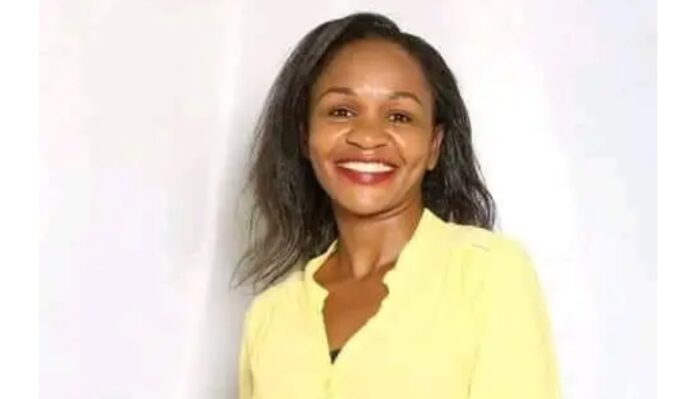It has been several months since Citizen TV’s investigative journalist, Purity Mwambia, unveiled her groundbreaking exposé titled “Guns Galore.”
The report shed light on the alarming issue of corrupt police officers leasing out their weapons and uniforms to criminal syndicates.
Since then, Mwambia has been noticeably absent from the limelight, leaving many Kenyans wondering about her whereabouts and well-being.
Jectone Oyoo: How I relocated from Kenya and started my own business in US
However, she recently resurfaced at a conference organized by the United States Department of State, where she candidly discussed the challenges faced by women journalists living in exile.
During a conference held on May 30, 2023, by the Bureau of Global Public Affairs, a division of the United States Department of State, particular attention was given to the distinct challenges encountered by women in the news industry.
As a panelist, Purity Mwambia was invited to share her insights on the obstacles confronted by journalists who are in exile as a result of their investigative endeavors.
“Thank you for this opportunity. My challenges are not very different from other investigative journalists in exile.
“First of all, when you come here from your country where you’ve done big stories, you’ve quoted all these people who are doing some corruption, big shots in the government… but believe me, when you come here, it’s like your voice is silenced.”
In her case, having been in the United States for two years, she admitted to only being able to pursue one story with a local media company.
“It’s hard to navigate the US media landscape, especially for global journalists. It’s so hard. I’ve been here for two years and I’ve only been able to do one story with one of the local companies.” she added.
Personal experiences have left Mwambia in a precarious situation, leading her to the brink of homelessness.
Kamau Thugge’s local dollar bond plan will kill Kenya Shilling, warns Njoroge
She revealed that the organization that brought her to the United States eventually abandoned her, leaving her unsure about her next steps.
”Personally, I was brought here by an organisation and they abandoned me. They left me, I’m on the verge of homelessness because I don’t know what to do next,” she said.
Mwambia candidly expressed her feelings of uncertainty and vulnerability, drawing a poignant parallel between herself and the homeless individuals she encounters on a daily basis.
Previously, she would have reported on such stories as a journalist, but now she finds herself in a similar predicament, unsure of her own future.
Additionally, Mwambia expressed her disillusionment with the treatment she has received since leaving prominent media houses in Kenya.
Despite her 20 years of experience in journalism, she now feels like an apprentice rather than an equal in the United States.
This realization has left her questioning whether her years of dedication and hard work were in vain.
Louis Otieno: Sad story of man who was once Kenya’s highest-paid news anchor
During her panel discussion, Mwambia stressed the importance of providing comprehensive support to journalists in exile.
She praised the United States for its reputation of assisting exiled journalists, not only through financial means but also by offering media spaces where their past experiences need not be a hindrance.








